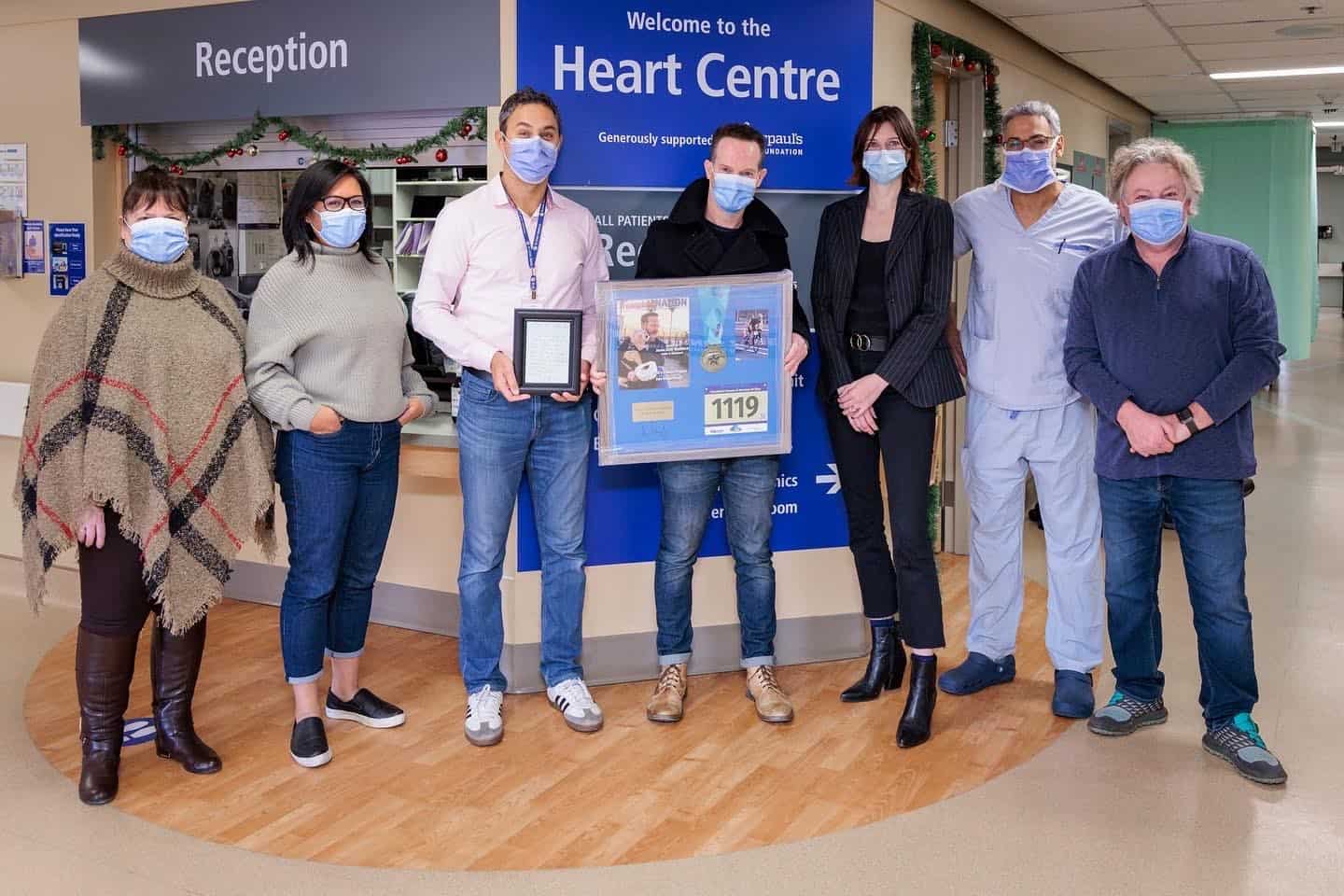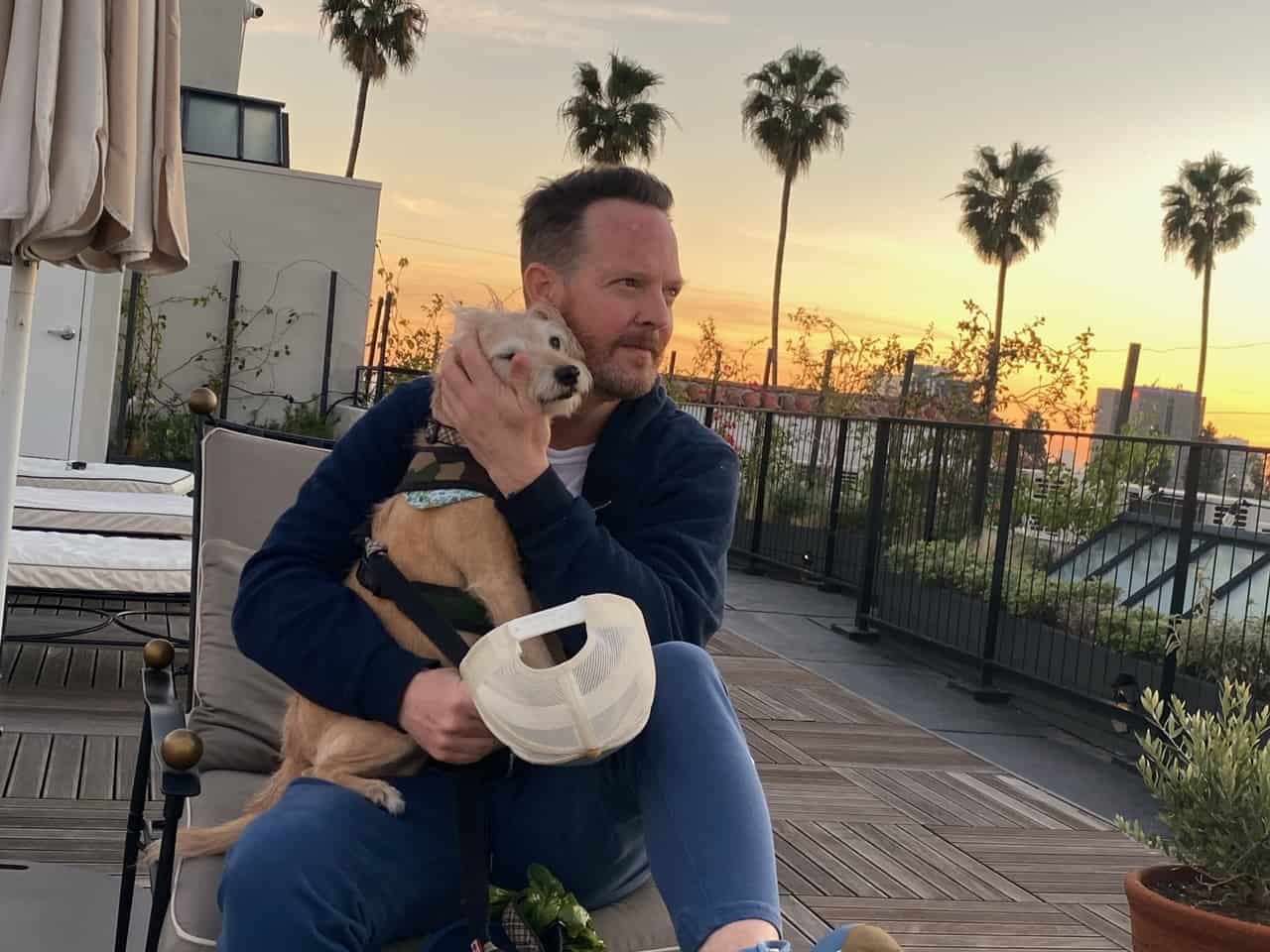“Receiving a transplant is a huge reward. Life gets to start over. I am incredibly grateful to the heart donor family and to my care team at St. Paul’s Hospital.”
– Jason Gray-Stanford, Grateful heart transplant patient
As a professional actor for over 25 years, I’ve played a doctor on NCIS and the father of a patient on Grey’s Anatomy, but nothing in my years of performing prepared me for my real-life role as a critically ill heart transplant patient at St. Paul’s Hospital.
I was born and raised in Vancouver, and graduated from UBC. My work as an actor has taken me all over the world, but I will always call Vancouver home. They say home is where the heart is – and for me that turned out to be true in more ways than one.
First warning signs
In early 2018, I was in Vancouver shooting a TV series. I was feeling really run down and tired, which was not normal for me. I’d always been fit, healthy, and energetic. I wasn’t performing well at the gym and everything I normally did had become an effort. I had no idea that my lack of energy and tiredness was a symptom of heart failure. I had no chest pain, no shortness of breath. Why would I think I might have a problem with my heart?
The morning I was scheduled to fly to LA, my body felt off. I went to see a doctor, who discovered I had a heart arrhythmia that was serious enough to send me directly to emergency. And luckily for me, the doctor’s office was right across the street from St. Paul’s Hospital.
(Lights, camera, and) immediate action!
Upon arriving at the Emergency Department at St. Paul’s Hospital, I was immediately triaged and given the tests necessary for the doctors to diagnose me with idiopathic dilated cardiomyopathy – a heart muscle disease that causes the heart chambers to thin and stretch, and grow larger. Dilated cardiomyopathy makes it harder for the heart to pump blood to the rest of the body. Idiopathic means the doctors didn’t know what caused the condition.
They told me I was in heart failure but my arteries were not clogged and I wasn’t sick in any other way. I had no classic symptoms. Somehow, something had affected my heart so it didn’t perform like a healthy heart. In fact, my heart was pumping blood at a rate that was less than 50% of what a healthy heart would pump.
With medicine, treatments, and regular visits to the cardiologists at St. Paul’s Hospital, I was able to manage my condition and lived an almost normal life, for about two years. The cardiac team at St. Paul’s was wonderful. They did everything they could to keep me up and running, but eventually it wasn’t enough – my heart was just too damaged.
Going downhill, fast
In November 2020, in the middle of the pandemic, I took a turn for the worse and went downhill incredibly fast. At this point, I had all of the symptoms of heart failure: chest pain, shortness of breath, and edema (swelling due to too much fluid trapped in my body’s tissues).
My doctors were very honest with me. They told me I was in dire straits and that, along with my heart failure, my kidneys and liver were also failing. I didn’t have much time left. My doctors quickly completed all the tests necessary to get me on the transplant list. And to all of our surprise, a heart that was a very strong match for me had become available!
I had two hours to decide if I wanted to go through with the transplant. I talked it over with my family on the phone – with COVID protocols in place, they couldn’t be at the hospital with me. The next morning, I had my heart transplant and began my long road to recovery.
A new heart, a new start
There have been a few bumps along the way. But with the support of my family and my incredible cardiac team, I was getting stronger and stronger each day. And less than two years after my transplant, I won a gold medal at the Transplant Games of America in the cycling competition! My St. Paul’s cardiac team was the reason I could compete at the Games, so I dedicated my medal to them, my heart donor and their family, and to all St. Paul’s patients, past, present, and future.

Receiving a transplant is a huge reward. Life gets to start over. I am so incredibly grateful to the heart donor family and to my care team at St. Paul’s Hospital.
I wouldn’t be here today if it weren’t for the immediate actions of my cardiac and transplant team, including Dr. Mustafa Toma, Dr. Margot Davis, Dr. Jamil Bashir, Dr. Andy Ignaszewski, Josie Mackey, and the many other dedicated team members who were so attentive and offered me such compassionate, personalized care.
I don’t have the words to express how grateful I am to my heart donor and their family. Their generosity and selflessness in their time of loss made my story, a success story.
I am living, walking proof of what a donation – be it an organ or money – means to transplant patients. Your support helps to ensure that the extraordinary level of care I received, and all of the innovation and advanced medical equipment I benefited from, are available to everyone who comes to St. Paul’s Hospital.
Sincerely,
Jason Gray-Stanford, grateful heart transplant patient
Donations to St. Paul’s Foundation will help to ensure we continue to provide compassionate, life-changing care to patients like Jason, when and where it is needed most.
